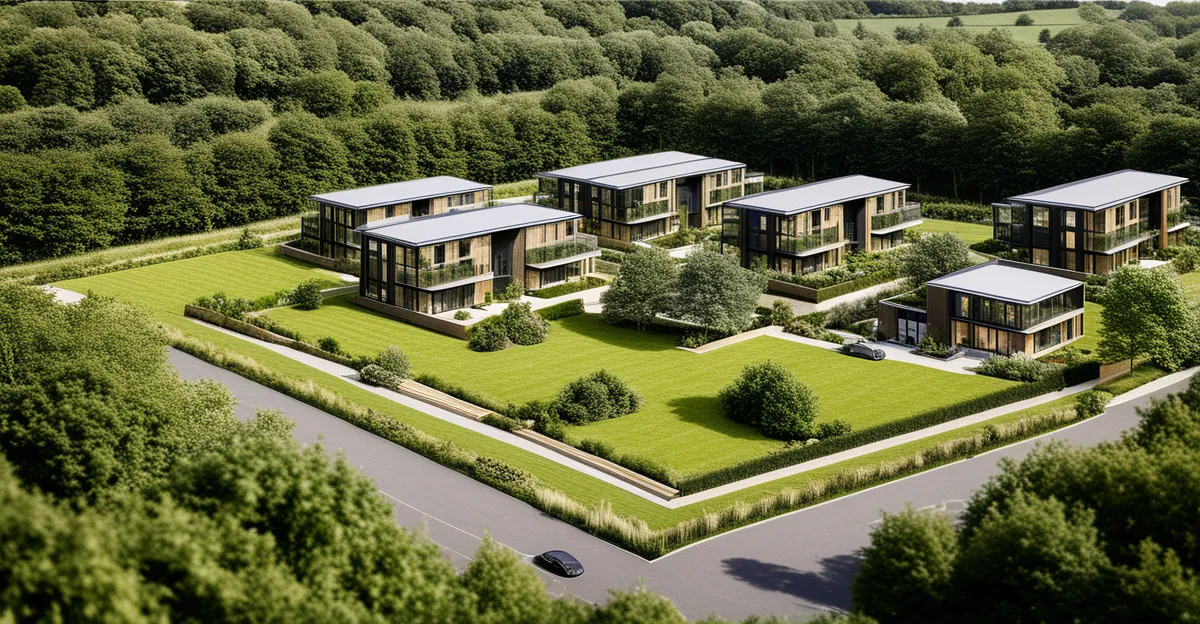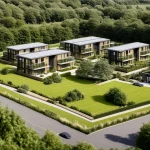Market Trends Driving Sustainable Real Estate in the UK
The demand for sustainable real estate UK is rising rapidly, driven by both investors and occupants seeking eco-friendly options. This shift reflects broader market trends emphasizing environmental responsibility and long-term value. Today’s property investment strategies increasingly prioritize green buildings that reduce energy consumption and carbon emissions.
There is notable growth in eco-friendly commercial and residential developments across the UK. Developers are incorporating renewable energy systems, efficient insulation, and sustainable materials to meet this demand. Such green buildings not only appeal to environmentally conscious buyers but also align with evolving financial metrics focused on Environmental, Social, and Governance (ESG) priorities. ESG considerations significantly influence property portfolios, encouraging investment in assets that offer both ecological benefits and resilient financial returns.
Topic to read : How Can Real Estate Investments Enhance Financial Stability in the UK?
Investors recognize that integrating sustainability into real estate can enhance asset value and tenant satisfaction. As sustainable real estate UK gains momentum, success hinges on understanding these market trends. For property investment decision-making, prioritizing green buildings is no longer optional; it’s a smart, future-proof strategy. This encapsulates a key shift reshaping the UK property landscape today.
Government Incentives and Policy Frameworks
Understanding the UK government green incentives is essential for stakeholders in sustainable real estate UK. These policies actively support eco-friendly property investment by offering grants and subsidies aimed at reducing carbon emissions in building projects. The government’s commitment to net zero carbon targets by 2050 significantly influences real estate regulation, motivating developers to integrate sustainability from the planning phase through construction.
Have you seen this : Exploring the Impact of Brexit on UK Real Estate Market: What Changes Lie Ahead?
Key elements of the policy framework include strict building standards and compliance requirements designed to ensure energy efficiency and environmental responsibility. Planning laws often mandate adherence to sustainability criteria, shaping how green buildings are designed and built across the UK. For example, regulations encourage the use of renewable energy systems and sustainable materials to meet environmental goals.
Developers responding to these regulations benefit from tailored support, making sustainable real estate UK projects more viable financially and socially. By aligning with government incentives, investors and builders can confidently navigate the regulatory landscape while contributing to broader climate objectives. This policy-driven environment fosters innovation and growth in green buildings, reinforcing their central role in the UK’s property investment market trends.
Advancements in Green Building Technology
Innovation in green building technology UK is reshaping sustainable real estate UK with a focus on maximizing energy efficiency. Renewable energy systems, such as solar panels and ground-source heat pumps, are core technologies driving the shift towards energy-positive buildings. These buildings generate more energy than they consume, reducing operational costs and carbon emissions significantly.
Construction materials have also evolved. The use of cross-laminated timber and recycled products not only lowers environmental impact but improves structural performance and insulation. These materials align with green buildings’ core principles by minimizing resource depletion and waste.
Furthermore, the integration of digital solutions plays a crucial role. Smart buildings equipped with advanced sensors and automated energy management optimize consumption in real time. This technology enhances the building’s responsiveness to occupancy patterns and weather changes, further improving sustainability.
Together, these advancements position the UK’s sustainable real estate sector at the forefront of innovation. Stakeholders adopting these technologies benefit from improved energy efficiency along with increased appeal to environmentally conscious occupants and investors, reinforcing positive market trends.
Economic and Environmental Benefits of Sustainable Real Estate
Sustainable real estate in the UK offers significant economic and environmental benefits that are reshaping property investment decisions. One key advantage is the cost efficiency realized through lower energy bills and reduced maintenance costs, boosting long-term returns. Investors benefit from enhanced UK property value as green buildings attract higher demand and often command premium rental incomes. This demand reflects rising tenant preferences for eco-friendly spaces, improving tenant retention and satisfaction.
The environmental impact of sustainable properties is equally important. By reducing carbon footprints, these buildings contribute directly to national climate goals. Sustainable real estate supports community resilience by promoting healthier living environments and reducing reliance on fossil fuels. Understanding these benefits is crucial for investors aiming to balance profitability with ecological responsibility.
Moreover, property investment in green buildings aligns with ESG priorities, further enhancing access to favourable financing terms. Sustainable developments encourage innovations that reduce operational costs, creating a virtuous cycle of economic gains and environmental stewardship. As a result, the benefits of sustainable real estate extend well beyond individual assets, influencing wider market trends and supporting the UK’s transition to a low-carbon economy.









